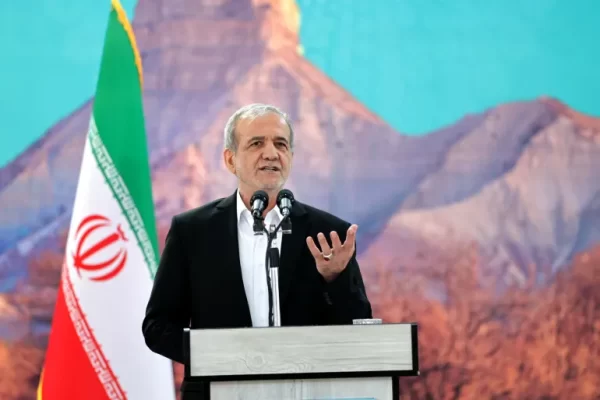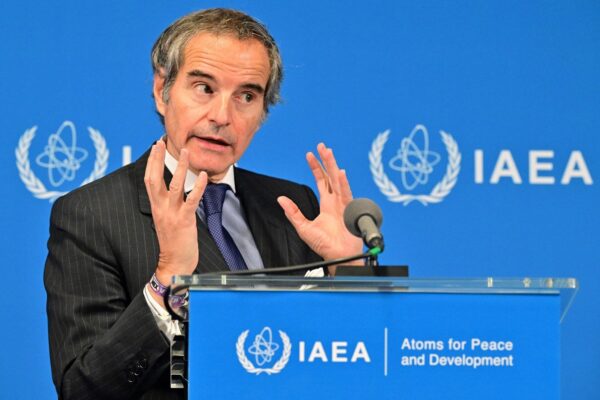
Iran Demands End to IAEA Double Standards Before Nuclear Talks Resume
Iranian President Masoud Pezeshkian has warned that Tehran will not resume cooperation with the International Atomic Energy Agency (IAEA) unless the UN nuclear watchdog addresses what he described as “double standards” in its approach to Iran’s nuclear program. In a phone call on Thursday with European Council President Antonio Costa, Pezeshkian said Iran’s future cooperation with the agency would depend on it acting with impartiality — a demand linked to the IAEA’s silence following recent attacks on Iranian nuclear facilities by the United States and Israel. “The continuation of Iran’s cooperation with the agency depends on the latter correcting its double standards regarding the nuclear file,” Pezeshkian said, according to Iranian state media. He also issued a strong warning against further aggression, stating, “Any repeated attack against Iran will be met with a more decisive and regrettable response.” Backdrop: June Conflict with Israel and U.S. Tensions escalated in mid-June after Israel launched a series of airstrikes targeting Iranian military and nuclear sites, which were followed by U.S. bunker-buster bombings. In retaliation, Iran launched drone and missile attacks on Israel and a U.S. base in Qatar, prompting a 12-day conflict that ended with a fragile ceasefire declared by President Donald Trump. In the aftermath, Pezeshkian signed a law suspending Iran’s cooperation with the IAEA. The agency confirmed that its inspectors have now left Iran, marking a serious breakdown in international nuclear oversight. Iran Alleges IAEA Complicity Iran has accused the IAEA of enabling the attacks by adopting a resolution on June 12 that accused Iran of breaching its nuclear commitments — just one day before the strikes. Tehran claims the agency’s actions showed alignment with Western political pressure and failed to uphold neutrality. “Despite remaining a signatory to the NPT [Treaty on the Non-Proliferation of Nuclear Weapons], we no longer trust the IAEA to act impartially,” an Iranian foreign ministry source told local media. Global Reactions IAEA Director General Rafael Grossi said talks with Iran remain a “top priority” and expressed hope for a return to monitoring “as soon as possible.” But he acknowledged the agency has had no access to Iranian facilities since the conflict. Meanwhile, U.S. State Department spokesperson Tammy Bruce called Iran’s withdrawal from cooperation “unacceptable,” insisting: “Iran cannot and will not have a nuclear weapon.” Bruce urged Tehran to “reverse course and choose a path of peace and prosperity,” despite no conclusive U.S. intelligence indicating Iran is pursuing a bomb. BRICS Blasts U.S.-Israel Actions The BRICS bloc of emerging economies on Sunday condemned the U.S.-Israel bombardments of Iran as a “blatant breach of international law.” Iran welcomed the statement, linking the ongoing Gaza war and regional instability to global impunity enabled by Western powers. The situation now raises serious concerns over the future of the Iran nuclear deal, regional stability, and the credibility of multilateral institutions like the IAEA.


